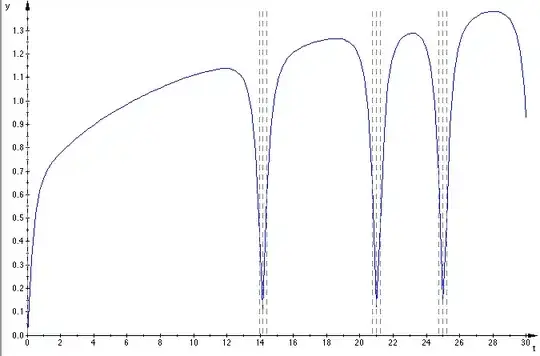Notation: $\zeta(s) = \zeta(x+it)$
In http://dml.cz/bitstream/handle/10338.dmlcz/136881/MathSlov_53-2003-2_3.pdf the following inequality was proven:
$$ \left|\zeta\left(\frac 1 2 - d+it\right)\right| \ge \left| \zeta\left( \frac 1 2 + d + it \right) \right| \text{ for } 0\le d \le \frac 1 2 \text{ and } t \ge 2\pi+1. $$
Letting $d = 1/2$, we get:
$$ |\zeta(it) \ge |\zeta(1+it)|. $$
The question concerns the relation between $|\zeta(1+it)|$ and $|\zeta(x+it)|$ . Specifically, is the inequality below true:
$$ |\zeta(x+it)| \le |\zeta(1+it)| $$
The above inequality will complete the ordering of the three moduli as follows:
$$ |\zeta(x+it)| \le |\zeta(1+it)| \le |\zeta(it)| $$
Thank you for your support.
 of $;t\mapsto \left|\dfrac {\zeta(\sigma+it)}{\zeta(1+it)}\right|$ for $\sigma=\frac 12$ and $t\in[0,30]$.
– Raymond Manzoni
Feb 26 '16 at 00:09
of $;t\mapsto \left|\dfrac {\zeta(\sigma+it)}{\zeta(1+it)}\right|$ for $\sigma=\frac 12$ and $t\in[0,30]$.
– Raymond Manzoni
Feb 26 '16 at 00:09